Related Research Articles

Neuroscience is the scientific study of the nervous system, its functions and disorders. It is a multidisciplinary science that combines physiology, anatomy, molecular biology, developmental biology, cytology, psychology, physics, computer science, chemistry, medicine, statistics, and mathematical modeling to understand the fundamental and emergent properties of neurons, glia and neural circuits. The understanding of the biological basis of learning, memory, behavior, perception, and consciousness has been described by Eric Kandel as the "epic challenge" of the biological sciences.
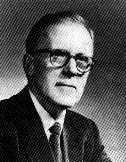
Donald Olding Hebb was a Canadian psychologist who was influential in the area of neuropsychology, where he sought to understand how the function of neurons contributed to psychological processes such as learning. He is best known for his theory of Hebbian learning, which he introduced in his classic 1949 work The Organization of Behavior. He has been described as the father of neuropsychology and neural networks. A Review of General Psychology survey, published in 2002, ranked Hebb as the 19th most cited psychologist of the 20th century. His views on learning described behavior and thought in terms of brain function, explaining cognitive processes in terms of connections between neuron assemblies.
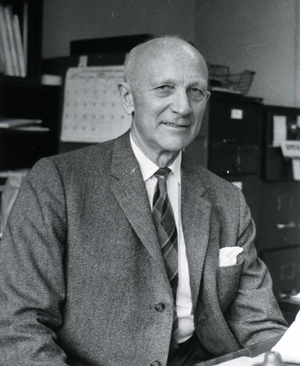
Wilder Graves Penfield was an American-Canadian neurosurgeon. He expanded brain surgery's methods and techniques, including mapping the functions of various regions of the brain such as the cortical homunculus. His scientific contributions on neural stimulation expand across a variety of topics including hallucinations, illusions, and déjà vu. Penfield devoted much of his thinking to mental processes, including contemplation of whether there was any scientific basis for the existence of the human soul.
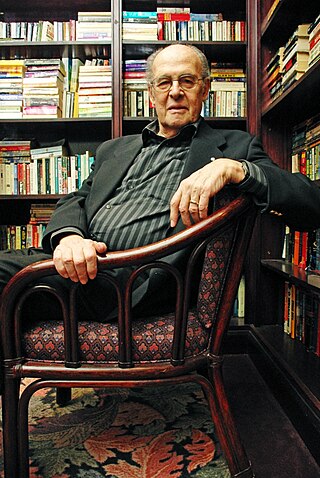
Ronald Melzack was a Canadian psychologist and professor of psychology at McGill University. In 1965, he and Patrick David Wall revolutionized pain research by introducing the gate control theory of pain. In 1968, Melzack published an extension of the gate control theory, in which he asserted that pain is subjective and multidimensional because several parts of the brain contribute to it at the same time. During the mid-1970s, he developed the McGill Pain Questionnaire and became a founding member of the International Association for the Study of Pain. He also became the founding editor of Wall & Melzack's Textbook of Pain.
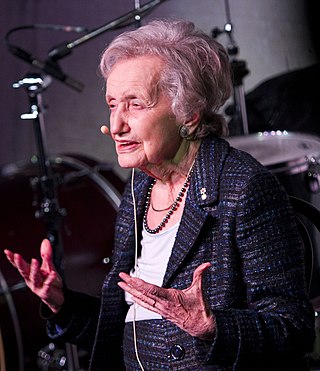
Brenda Milner is a British-Canadian neuropsychologist who has contributed extensively to the research literature on various topics in the field of clinical neuropsychology. Milner is a professor in the Department of Neurology and Neurosurgery at McGill University and a professor of Psychology at the Montreal Neurological Institute. As of 2020, she holds more than 25 honorary degrees and she continued to work in her nineties. Her current work covers many aspects of neuropsychology including her lifelong interest in the involvement of the temporal lobes in episodic memory. She is sometimes referred to as the founder of neuropsychology and has been essential in its development. She received the Balzan Prize for Cognitive Neuroscience in 2009, and the Kavli Prize in Neuroscience, together with John O'Keefe, and Marcus E. Raichle, in 2014. She turned 100 in July 2018 and at the time was still overseeing the work of researchers.
William Howard Feindel was a Canadian neurosurgeon, scientist and professor.
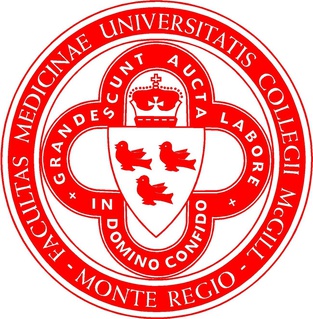
The Faculty of Medicine and Health Sciences is one of the constituent faculties of McGill University. It was established in 1829 after the Montreal Medical Institution was incorporated into McGill College as the college's first faculty; it was the first medical faculty to be established in Canada. The Faculty awarded McGill's first degree, and Canada's first medical degree to William Leslie Logie in 1833.
From the ancient Egyptian mummifications to 18th-century scientific research on "globules" and neurons, there is evidence of neuroscience practice throughout the early periods of history. The early civilizations lacked adequate means to obtain knowledge about the human brain. Their assumptions about the inner workings of the mind, therefore, were not accurate. Early views on the function of the brain regarded it to be a form of "cranial stuffing" of sorts. In ancient Egypt, from the late Middle Kingdom onwards, in preparation for mummification, the brain was regularly removed, for it was the heart that was assumed to be the seat of intelligence. According to Herodotus, during the first step of mummification: "The most perfect practice is to extract as much of the brain as possible with an iron hook, and what the hook cannot reach is mixed with drugs." Over the next five thousand years, this view came to be reversed; the brain is now known to be the seat of intelligence, although colloquial variations of the former remain as in "memorizing something by heart".
Mark Solms is a South African psychoanalyst and neuropsychologist, who is known for his discovery of the brain mechanisms of dreaming and his use of psychoanalytic methods in contemporary neuroscience. He holds the Chair of Neuropsychology at the University of Cape Town and Groote Schuur Hospital and is the President of the South African Psychoanalytical Association. He is also Research Chair of the International Psychoanalytical Association.

Albert Gjedde: is a Danish-Canadian neuroscientist. He is Professor of Neurobiology and Pharmacology at the Faculty of Health Sciences and Center of Neuroscience at the University of Copenhagen. He is currently also Adjunct Professor of Neurology and Neurosurgery in the Department of Neurology, Montreal Neurological Institute, McGill University, Montreal, Quebec, Canada, Adjunct Professor of Radiology and Radiological Science in the Division of Nuclear Medicine, Department of Radiology and Radiological Science, Johns Hopkins University, Baltimore, Maryland, US, Adjunct Professor of Translational Neuropsychiatry Research, University of Southern Denmark, Odense, Denmark, and adjunct professor of psychiatry at Tabriz University of Medical Sciences, Tabriz, East Azerbadjan, Iran.
Douglas G. Stuart was a Regents' professor emeritus of Physiology at the University of Arizona.
Donald W. Baxter was a Canadian neurologist Emeritus Professor in the Department of Neurology and Neurosurgery at McGill University and former Director of the Montreal Neurological Institute and Hospital. He graduated from Queen's University and trained at McGill University Health Centre, Kingston General Hospital and Boston City Hospital. In 1962, he became Associate Professor of Neurology at McGill University and was later chairman of the institute's Neurology and Neurosurgery Departments. Between 1984 and 1992 he was MNI Director; a role he continued in the capacity of Interim Director from 2000-2002. In 1996 he was named an Officer of the Order of Canada.

James Rutka is a Canadian neurosurgeon from Toronto, Canada. Rutka served as RS McLaughlin Professor and Chair of the Department of Surgery in the Faculty of Medicine at the University of Toronto from 2011 – 2022. He subspecializes in pediatric neurosurgery at The Hospital for Sick Children (SickKids), and is a Senior Scientist in the Research Institute at SickKids. His main clinical interests include the neurosurgical treatment of children with brain tumours and epilepsy. His research interests lie in the molecular biology of human brain tumours – specifically in the determination of the mechanisms by which brain tumours grow and invade. He is the Director of the Arthur and Sonia Labatt Brain Tumour Research Centre at SickKids, and Editor-in-Chief of the Journal of Neurosurgery.
Edward S. Ruthazer is a Canadian neuroscientist and James McGill Professor in the Department of Neurology and Neurosurgery at McGill University in Montreal, Quebec.
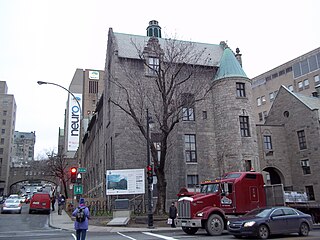
The Montreal Neurological Institute-Hospital(MNI), also known as Montreal Neuro or The Neuro, is a research and medical centre dedicated to neuroscience, training and clinical care, located in the city's downtown core of Montreal, Quebec, Canada. It is part of the McGill University Health Centre network and it is situated on the southern slope of Mount Royal along the east side of University Street, just north of Pine Avenue. It was founded in 1934 by neurosurgeon Wilder Penfield, who developed the Montreal procedure there for the treatment of epilepsy.
Kevin Petrecca is a neurosurgical oncologist, currently chief of the Department of Neurosurgery at the McGill University Health Centre and appointed as the William Feindel Chair in Neuro-Oncology at McGill University in Montreal, Quebec, Canada.
Terence J. Coderre is Professor of Medicine and the Harold Griffith Chair in Anaesthesia Research at McGill University in Montreal, Quebec, Canada. He is an investigator at the Alan Edwards Centre for Research on Pain at McGill University and the McGill University Health Centre Research Institute in Brain Repair and Integrative Neuroscience (BRaIN) Program.
Edith Hamel is a Canadian neuroscientist researching the various interactions between neurons, astrocytes and microvessels which enable a proper blood supply to activated brain areas and the various neurological conditions that arise from an impaired functioning of the system.

Sabine Kastner is a German-born American cognitive neuroscientist. She is professor of psychology at the Princeton Neuroscience Institute at Princeton University. She also holds a visiting scientist appointment at the University of California at Berkeley.
David Alan McCormick is an American neurobiologist. He holds one of two Presidential chair positions and is director of the Institute of Neuroscience at the University of Oregon and co-director of the Neurons to Minds Cluster of Excellence.
References
- ↑ Eiser, Alan S. (April 2013), "Dreaming, psychoanalysis, and neurobiology", Contemporary Psychoanalysis, 49 (2): 213–225, doi:10.1080/00107530.2013.10746547
- ↑ "Barbara E Jones, PhD", Department of Neurology and Neurosurgery, McGill University, retrieved 2022-05-07
- ↑ "Barbara E Jones", Research Discovery Network, McGill University, retrieved 2022-05-07
- ↑ "Speakers", Mini Symposium on Sleep, Brain Plasticity, and Cognition, Concordia University, 27 September 2019, retrieved 2022-05-07
- ↑ "Remembering Barbara Jones", In Memorium, McGill University, 5 August 2022, retrieved 2022-08-28
- ↑ "Prof. Barbara Jones", Find an RSC Member, Royal Society of Canada, retrieved 2022-05-07
- ↑ Neuro Sleep Symposium - In honour of Professor Barbara Jones, Montreal Neurological Institute and Hospital, 1 October 2021, retrieved 2022-05-07